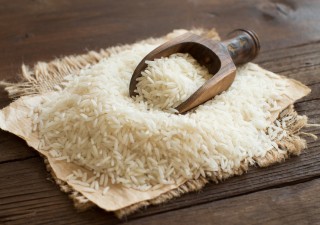New Zealand’s IP Experts 2024
30 April 2024

Much to the chagrin of honey farmers, New Zealand’s intellectual property office (IPONZ) ruled last year that mānuka honey cannot be trademarked, leaving use of the valuable name open to producers in neighbouring Australia.
The dispute, which dates to 2015 when the Mānuka Honey Appellation Society (MHAS) sought to register mānuka honey as a certification trademark exclusively for such honey produced in New Zealand.
Crystal Yulan Zhang, a lawyer at Shanghai-based HFG Law & Intellectual Property, wrote on the firm’s website last year that, unlike a standard trademark, a certification trademark certifies that the goods or services adhere to specific characteristics or standards which distinguish them from others. “Accompanying regulations which specify the criteria to be met by goods and services are crucial to obtain certification trademark status. In this case, MHAS proposed regulations that required the honey to be produced in New Zealand and possess specific characteristics from the leptospermum scoparium plant,” she wrote.
The Australia Mānuka Honey Association, on the other hand, argued that the term was merely descriptive rather than distinctive.
The court’s decision hinged upon “mānuka,” a Maori word which has been adopted into English, and the fact that the plant from which the honey derives is native to both New Zealand and Australia.
“After evaluating how the average consumers would consider the term, the Intellectual Property Office of New Zealand concluded that ‘mānuka honey” was widely used by both countries for honey products before the application was filed, and accordingly it is insufficiently distinctive. The office said in its ruling that this was ‘one of the most complex and long-running proceedings’,” Zhang wrote.
In other food-related IP news from New Zealand, the owner of a food truck who hoped to call his eatery “Lord of the Wings” faced disappointment when IPONZ turned down his application for a trademark. The Saul Zaentz Company (SZC) has owned global merchandising rights to J.R.R. Tolkien’s epic work The Lord of the Rings since 1976; SZC licensed the rights for film production in 1998, leading to the blockbuster The Lord of the Rings trilogy and objected to the application.
In a December 2023 decision released by IPONZ, Ruvini Rendle, assistant commissioner of trademarks, agreed with the Tolkien franchise that the marks for the branding were too similar.
“I consider that use of Lord of the Wings by the applicant is likely to cause a substantial number of persons in the relevant market to wonder whether the Lord of the Wings mark applied in relation to the provision of food and drink services is connected or associated with the opponent,” the decision said. “The level of similarity required to prohibit registration can be enough to tie brands together, sparking a connection in the minds of consumers.”
New Zealand continues to maintain robust IP laws, both domestically and with neighbouring Australia. It is with this ongoing interest in IP laws we turned to IP professionals in the region in order to understand better what clients need today. Asia IP asked a large number of professionals – mostly in-house counsel and corporate legal managers – what they were looking for from their legal service providers. From their answers, we have compiled our list of New Zealand’s IP Experts, those lawyers who understand what their clients need and are able to provide them with the best practical advice.
To anyone familiar with the intellectual property market in New Zealand, it is no surprise that AJ Park leads the list of law firms represented on the list; the powerhouse law firm placed eight lawyers on our list (Jonathan Aumonier-Ward, Anton Blijlevens, Penelope Catley, Kate Giddens, Amanda Griffiths, Thomas Huthwaite, Tim Jackson and Wes Jones), followed closely behind by by James & Wells, which had seven lawyers on the list (Ian Finch, Gus Hazel, Jonathan Lucas, Carrick Robinson, Jason Wach, Tim Walden and Ceri Wells). Other firms were also well represented: Buddle Findlay (John Glengarry, Hamish Selby and Philip Wood), Catalyst Intellectual Property (Emily Ellis, Greg Lynch and John Mansell), Chapman Tripp (Tom Cleary, Kelly McFadzien and Matt Sumpter) and Hudson Gavin Martin (Caitlin Hadlee, Tim Mahood and Jason Rudkins-Binks) each had three lawyers included on our list, while Blue Penguin IP (Jon Ashen and Jo Shaw), Henry Hughes IP (David Moore and David Nowak), Ironside McDonald Intellectual Property (Sue Irwin Ironside and Rachel McDonald) and Simpson Grierson (Sarah Chapman and Richard Watts) each placed two lawyers on our list.
Our survey includes only those lawyers working at law firms in New Zealand.
Most of the lawyers named to our list have multiple practice specialties. Many of them are litigators, while others concentrate on prosecution work or provide strategic advice.
All of them have something in common: they are Asia IP’s IP Experts for New Zealand.
– Gregory Glass



-Recovered-content_x-large.jpg)



